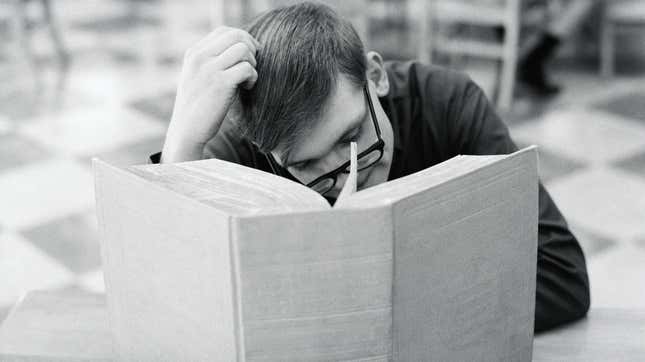You Don't Have to Read Gravity's Rainbow During Self-Isolation
In Depth

In the early days of social distance, during my first weekends crammed into my house, I struggled to read the big, ambitious books that I had squirreled away for all this time alone. I bought Ducks, Newburyport, a whopper of a novel that’s refreshing thanks simply to its structure. The novel is written as one long stream of consciousness, and reading it feels removing my brain from my head and temporarily residing in someone else’s. In small sections, it is perfect, but like anything else I attempt, it gets old. Desperate for other options, I turned to friends for recommendations of literature that would solve my restlessness: big, honking books, heavy on plot and biblical in length, but easy enough to read that doing so would not feel like work.
As more and more states issued mandates to residents to stay indoors as best as they can, various websites across this great internet churned out reading lists for the pandemic, as if were a new season in the publishing cycle, sandwiched in between fall’s ambitious, serious novels and summer’s frothy pap. But the best quarantine reading list isn’t prescriptive, because everyone is experiencing this moment differently and so the books (or other distractions) that work for some will not work for others.
-

-

-

-

-

-

-

-

-

-

-

-

-

-

-

-

-

-

-

-

-

-

-

-

-

-

-

-

-

-

-

-

-

-

-

-

-

-

-

-








































